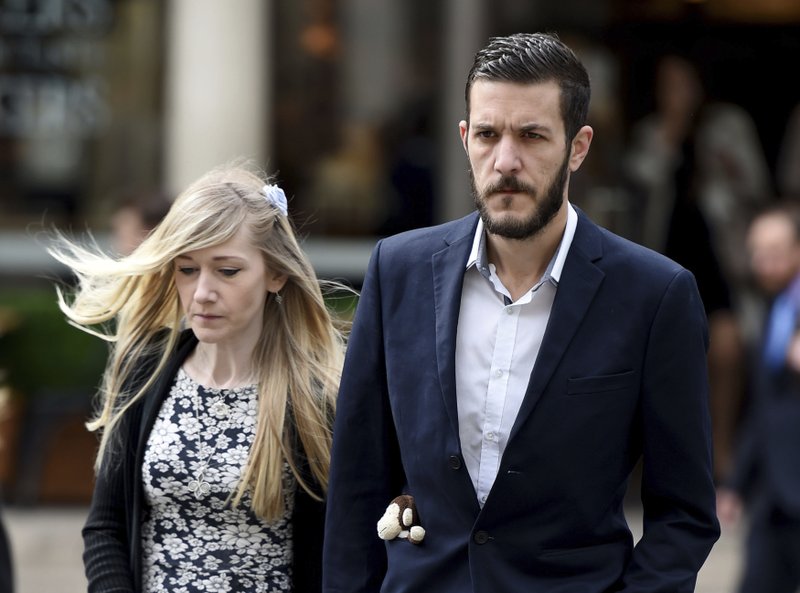LONDON — The parents of critically ill baby Charlie Gard wept as they dropped their legal bid Monday to send him to the United States for an experimental medical treatment, acknowledging that the window of opportunity to help him had closed.
Charlie's mother, Connie Yates, hugged her husband, Chris Gard, as they described their decision to "let our son go." Recent medical tests on 11-month-old Charlie showed that the baby has irreversible muscular damage, and the new treatment wouldn't help.
The parents said too much time was spent in court battles and that their son had lost his chance to improve. They apologized to Charlie for failing in their quest to save him.
"We will let our son go, and be with the angels," Yates said.
Charlie has a rare genetic condition, and his parents wanted him to receive an experimental treatment in the United States.
Doctors at Great Ormond Street Hospital in London had argued that the treatment wouldn't help and could cause the child pain, so they challenged the parent's wishes. The hospital wanted to switch off his life support and allow Charlie to die peacefully.
The case won international attention after Charlie's parents received support from Pope Francis, U.S. President Donald Trump and some U.S. lawmakers. Some U.S.-based activists also traveled to London to support Charlie's parents.
Some commentators have portrayed the case as a clash between a family and the state, and some U.S. conservatives have used it to criticize Britain's state-funded health care system — even though the case has never been about money.
Judge Nicholas Francis said the crux of the matter was that "in this country, children have rights independent of their parents." While parents usually decide what is best for their children, in some cases, hospitals and parents disagree, he said.
The judge condemned all the abuses and threats that have been directed at the hospital, doctors and nurses treating Charlie but stressed these had nothing to do with the boy's parents.
The judge had scheduled a two-day hearing beginning Monday to consider fresh evidence after Dr. Michio Hirano, an American neurology expert from Columbia Medical Center in New York, came to London to examine the child.
But the family's attorney, Grant Armstrong said nothing further could be done and that it was "worthy of a Greek tragedy" that they had to withdraw their appeal just as they were about to present new evidence to the court.
The judge paid tribute to the infant's parents, saying it was impossible to comprehend the agony they faced.
"No parent could have done more for their child," he said.
The hospital also paid tribute to the family, saying the "agony desolation and bravery of their decision" commands Great Ormond's respect and humbled "all who work there."
But in their statement on Monday's hearing, the hospital also criticized Hirano, saying it was concerned because he had testified that he retained a financial interest in some of the compounds he proposed prescribing for Charlie.
"In the months ahead, all at GOSH will be giving careful thought to what they can learn from this bruising court case that might enrich the care it provides to its most vulnerable patients and families," hospital lawyer Katie Gollop said in the statement. "It is hoped that those who, like the Professor [Hirano] have provided the opinions that have so sustained Charlie's parents, their hopes and thus this protracted litigation with its many consequences, will also find much upon which to reflect."
Hirano did not immediately respond to a request for comment.
Read Tuesday's Arkansas Democrat-Gazette for full details.
